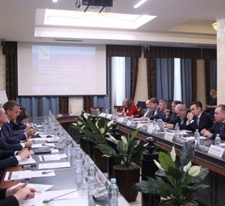Self-employed to the nail!
Russian President Vladimir Putin has signed a law on the introduction of a tax regime for self-employed citizens. We are talking about designers, housekeepers, repairmen – about all those who work for themselves, but do not declare income. The Russian authorities want to bring such people out of the shadows and for this they are preparing a tax experiment in several regions. The new tax is introduced for ten years from January 1, 2019 in Moscow, Moscow region, Kaluga region and Tatarstan. If the experiment is successful, it will be distributed to the whole of Russia.

self-employed refers to citizens who do not have an employer and employees, but provide services or create some kind of product, whose income is no more than 2.4 million rubles a year, that is, no more than 200 thousand rubles a month. According to expert estimates, there are about 20 million self-employed citizens in Russia today who receive income from professional activities, but do not pay taxes. This category includes, for example, Instagram designers and seamstresses engaged in private tailoring at home after their main job.

The law assumes that self-employed citizens will pay a tax of 4% of income. If the customers of a self-employed person are a legal entity or individual entrepreneurs, then the tax rate will be 6%.
Violators of the new tax regime will be charged for the first time with a fine in the amount of 20% of the amount for which the check was not issued (but not less than 1,000 rubles). In case of relapse, 100% of income that has not been officially accounted for will be taken away. It is important to note that only registered self-employed citizens will be fined.

For the convenience of citizens, the Federal Tax Service has developed a special mobile application "My Tax", through which fiscal receipts can be sent to the department. In fact, people don't necessarily have to go to the tax office. The tax bill will be sent online every month. As a bonus, citizens who register in the mobile application will receive a tax deduction of 10 thousand rubles.

This is not the first attempt to legalize the self-employed. Previously, the authorities offered self-employed citizens to take advantage of tax holidays, that is, a zero rate on income for 2017 and 2018. In return, it was necessary to officially register with the tax authorities. However, under such conditions, only about a thousand people were registered.
Photo: shutterstock











